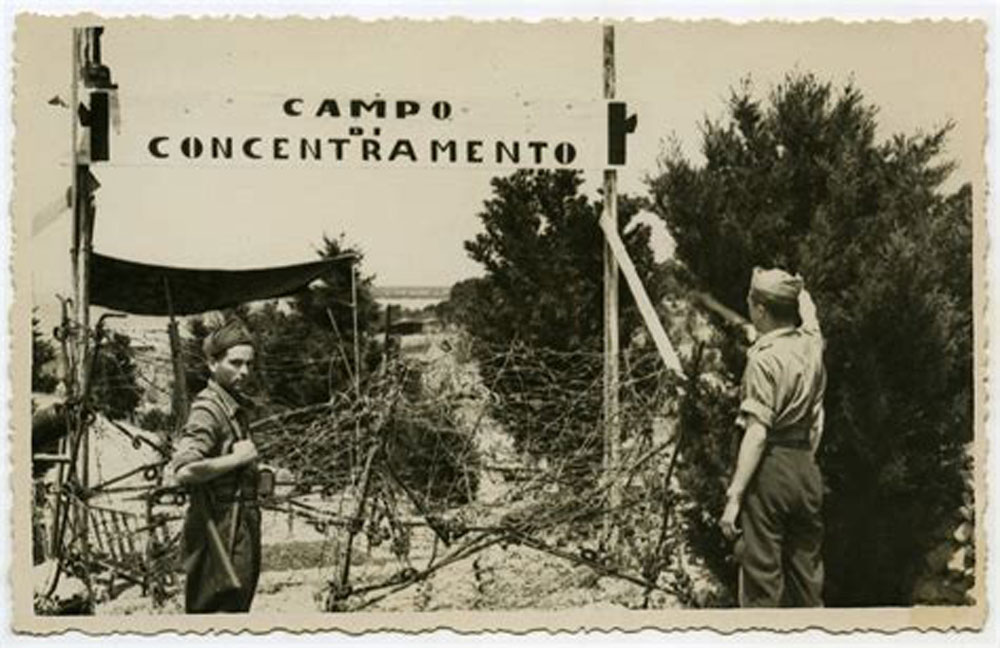Davide Rodogno
Davide Rodogno is Academic Fellow in the School of Modern History at the University of St Andrews. Dr. Rodogno was a Research Fellow at the London School of Economics (2002-2004) and Foreign Associate Researcher at the Institute of Contemporary History in Paris (2004-2005). Since 2005, he has been a Research Council United Kingdom Academic Fellow at the School of History, University of St Andrews. He is currently “professeur boursier” for the Swiss National Science Foundation affiliated to the International History and Politics unit of the Graduate Institute where he leads a research project on the history of humanitarian international associations since 1850. His doctoral thesis was published in Italian as “Il nuovo ordine mediterraneo” (Bollati Boringhieri, 2003) and in English as “Fascism’s European Empire” (Cambridge University Press, 2006). His second monograph on the concept and practice of international humanitarian intervention in the 19th century has recently been completed. Books Against Massacre: Humanitarian Interventions in the Ottoman Empire (1815-1914), The Birth of a Concept and International Practice, Princeton University Press (under review) and Laterza, Rome, (forthcoming) Fascism’s European Empire, Cambridge University Press, (Cambridge, 2006) Il nuovo ordine mediterraneo. Le politiche d’occupazione dell’Italia fascista in Europa 1940-1943, Bollati Boringhieri, (Turin, 2003) Articles ‘Le nouvel ordre fasciste en Méditerranée, 1940-1943 : présupposés idéologiques, visions et velléités’, in Revue d’Histoire Moderne et Contemporaine, vol. 55, n.3, 2008 ‘Réflexions liminaires à propos des Interventions Humanitaires des Puissances Européennes au Dix-neuvième Siècle’, in Relations Internationales, n.131, 2007 ‘La politique des occupants italiens à l’égard des Juifs en France métropolitaine. Humanisme ou pragmatisme?’, in Vingtième Siècle, n.93, January – March 2007 ‘Italiani Brava Gente? Italian Policy Toward the Jews of the Balkans’, in European History Quarterly, 35/2 2005 ‘Italian Soldiers in the Balkans. The Experience of the Occupation (1940-1943)’, in Journal of Southern Europe and the Balkans, vol. 6, iss. 2, 2004 ‘Les conquérants fascistes et l’espace vital’, in Relations Internationales, n.110, 2002 ‘Le repressioni italiane nei territori occupati tra il 1940 e il 1943’, in Qualestoria, XXX, n.1, 2002 Chapters ‘L’Italia Paese Occupante’, in Storia della Shoah in Italia (tentative title), edited by Marie-Anne Bonucci, Marcello Flores, Simon Levis Sullam, Enzo Traverso, UTET, Turin, 2009 ‘Fascism and War’, Handbook on Fascism, edited by Richard Bosworth, Oxford, Oxford University Press, 2008, Chapter 13 ‘Fascist imperial conquest in the Mare Nostrum’; and – ‘Fascist Italy occupation of Greece’, Greece during the Second World War, edited by Christos Hadjiossif, Athens, Bibliorama, vol. 1, 2007 (in Greek) ‘Répression et représailles dans les territoires européens occupés par l’Italie Fasciste entre 1941 et 1943 : buts et méthodes’ in La Répression en France, 1940-1945; Jean-Luc Leleu (ed); Centre de Recherche d’Histoire Quantitative, 2007 ‘Le grandi Potenze e gli ‘interventi umanitari’ nell’Impero Ottomano: una riconsiderazione del caso greco, 1821-1829’, Schegge d’impero, pezzi d’Europa, Fortune e dilemmi degli stati post-ottomani, 1804-1923, Marco Dogo (ed); Libreria Editrice Goriziana, 2006
Davide Rodogno, Fascism’s European Empire: Italian Occupation During the Second World War, Cambridge University Press, 2006

A controversial reappraisal of the Italian occupation of the Mediterranean during the Second World War which Davide Rodogno examines for the first time within the framework of fascist imperial ambitions. He focuses on the European territories annexed and occupied by Italy between 1940 and 1943: metropolitan France, Corsica, Slovenia, Croatia, Dalmatia, Montenegro, Albania, Kosovo, Western Macedonia, and mainland and insular Greece. He explores Italy’s plans for Mediterranean expansion, its relationship with Germany, economic exploitation, the forced ‘Italianisation’ of the annexed territories, collaboration, repression, and Italian policies towards refugees and Jews. He also compares Fascist Italy and Nazi Germany through their dreams of imperial conquest, the role of racism and anti-Semitism, and the ‘fascistization’ of the Italian Army. Based on largely unpublished sources, this is a groundbreaking contribution to genocide, resistance, war crimes and occupation studies as well as to the history of the Second World War more generally.
“Rodogno intends the book as a ‘point of departure’ with a discussion of themes that should ‘be deepened’ (p. 416). This is too modest a claim for such a superb book. The author’s detailed analysis and skillfully interweaving of material on Fascist occupation set a high standard. Contributing much to our knowledge and understanding of Italian Fascism, the book is certain to stimulate further comparative study of occupation policy.”
– Maura E. Hametz, Old Dominon University
“It is refreshing when a quality study with new perspectives is published.”
-LTC Michael A. Boden, Military Review
“Rodogno has written an exceptional work which has now been professionally translated. Effectially, Rodogno has widened the historiography of the war and brought a new perspective to bear on axis conquest, occupation, and racism…David Rodogno should be congratulated for this excellent book. Facism’s European Empire sheds light on a vague and largely misunderstood aspect of Second World War history. It should be essential reading for all students of modern European history.”
-Philip Blood, Canadian Journal of History
“Rodogno relates this disturbing story exceptionally well. His research is first-rate. He has worked assiduously in Italian archives and provided comprehensive and compelling findings. He is careful with the resulting evidence, clearly understanding its importance but also its limits. His explanation is meticulously organized and presesent, and nonspecialists will be able to follow the chain of argument easily.” -G. Bruce Strang, The Historian
“…deserves thorough discussion on both sides of the Atlantic…Rodogno has succeeded in producing a persuasive and novel analysis of this contentious topic. The book is an eloquent narrative history that will no doubt interest scholars across disciplines as it promises to reinvigorate scholarship on Fascist Italy, the Holocaust, and the wartime experience in Mediterranean Europe.” –Emily Greble Balic, Harvard University: Journal of Interdisciplinary History










